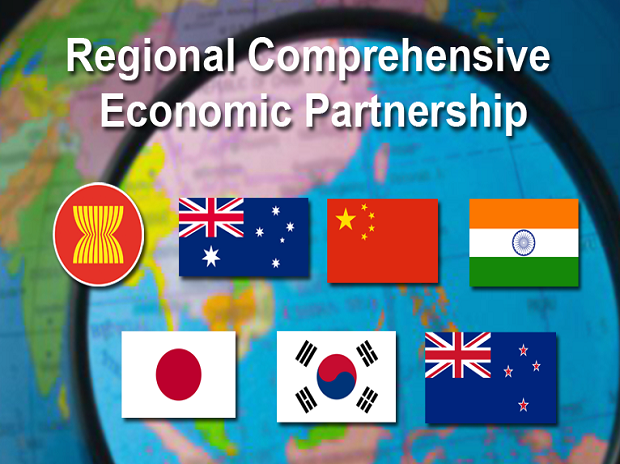South Korea and Japan look set to be the biggest winners in the Asian oil and chemicals marketplace as the world’s largest regional free-trade agreement paves the way for a gradual reduction in tariffs.
The Regional Comprehensive Economic Partnership, signed last month by 15 nations accounting for around a third of the world’s population, will put the two Northeast Asian countries in a better position to supply China’s burgeoning refining industry with a range of products. These include light-cycle oil, bitumen, base oil, aromatics, as well as petrochemical feedstocks.

China imported the equivalent of around $12 billion of these products in the first 10 months of 2020, customs data show. South Korea and Japan will likely win greater market share at the expense of the more distant Singapore and Malaysia. The Southeast nations, while also part of RCEP, already benefited from zero tariffs due to a free-trade agreement between China and ASEAN.
“It certainly means that more of these products will flow to China from Asian countries, with Korea and Japan the beneficiaries,” said Michal Meidan, director of the China Energy Programme at the Oxford Institute for Energy Studies. “But the extent also depends on potential tax loopholes that could exacerbate speculative buying and the issue of blending.”
China’s oil-refining capacity has nearly tripled since the turn of the millennium and it could overtake the U.S. as early as next year, according to the International Energy Agency. Much of the growth is coming from massive integrated plants that produce both fuels and petrochemicals, but the refiners still need to import feedstocks such as ethylene and paraxylene.
Chinese import tariffs on oil and chemical products from South Korea and Japan, which currently range from 0.8% to 8%, will be gradually reduced to zero over the next 20 years under RCEP, according to documents posted on the website of China’s Ministry of Commerce. The Northeast Asian nations are already the biggest suppliers to China in many of the product categories, but RCEP may make them even more dominant.
The free-trade agreement isn’t expected to have a major impact on refined fuels, given China is already a net exporter of diesel and gasoline and doesn’t impose any tariffs on jet fuel.
South Korea will probably benefit the most in the petrochemicals feedstock trade from RCEP as tariffs are reduced, said William Liu, a senior consultant at Wood Mackenzie Ltd. But it won’t be enough to offset the cost advantage of U.S. and Middle East imports, he said.
One of the oil products that might be most-affected by RCEP is light-cycle oil, used as a blending stock for diesel and fuel oil. Chinese LCO imports from Korea surged this year due to a tax loophole that exempted it from duties on refined fuels. Some shipments were even diverted via Malaysia to avoid import tariffs in China, according to traders who participate in the market.
“RCEP’s biggest boon for South Korea and Japan could be in the light-cycle oil trade with China,” said Yuntao Liu, an analyst at Energy Aspects Ltd. in London. The two nations offer better quality LCO and look set to win more market share from Southeast Asia as tariffs are reduced, he said.

Follow us on social media: